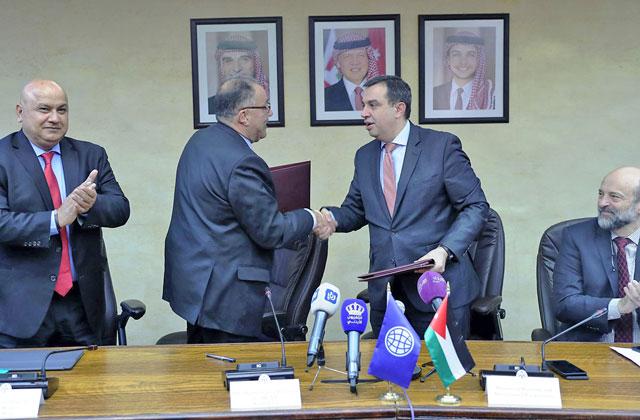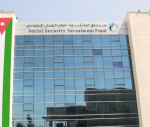You are here
Refugees can be ‘development asset’ for Jordan — pundits
By Camille Dupire - May 09,2018 - Last updated at May 09,2018
AMMAN — Experts from the Washington-based Centre for Global Development (CGD) and the International Rescue Committee (IRC) recently co-hosted an event where they outlined recommendations to help boost refugees’ impact on host countries’ development in light of the protracted refugee crisis.
Following Minister of Planning and International Cooperation Imad Fakhoury’s recent participation in the Spring meetings of the World Bank (WB) and the International Monetary Fund (IMF) in Washington, experts provided insight into ways to improve financing mechanisms to enhance mutual benefits for both refugees and host communities.
“The meeting came with a simple premise that contradicts much conventional wisdom: refugees are not a burden, but a development asset; which compels the question: what policies, financing and partnerships are needed to realise the promise of mutual benefit?,” began Cindy Chuang, co-director of migration, displacement and humanitarian policy at CGD.
Highlighting Jordan’s pioneering efforts in achieving regional stability through supporting and protecting the rights of over 1.4 million refugees residing in the Kingdom, Chuang called for developing innovative differential pricing of loans to spur investment in public goods.
“So far, Jordan has been partnering with the WB, the EU and other institutions to identify and support refugee rights, while expanding development gains for all. A key anchor for this effort is the funding from the WB’s Global Concessional Financing Facility [GCFF], which provides lower-rate loans to help to middle-income countries meet the development needs of refugees and host communities,” said Kate Gough, research assistant at CGD, noting that “these loan subsidies are a recognition of the public good generated by the investments”.
“GCFF’s efforts to incentivise investments in global public goods have witnessed important successes but stakeholders are still facing challenges in implementing this new approach,” she told The Jordan Times, calling for ways to boost investments in other public goods such as disaster preparedness and climate change mitigation and adaption.
“Minister Fakhoury perhaps captured the discussion best in one simple point: if we don’t get the financing right for refugee hosting countries, it will be impossible to get the moral responsibility right,” Chuang explained, urging continued focus on displacement in spite of the latest geopolitical developments.
“We must keep our focus on displacement, even when the headlines stray. Such innovative approaches will be ineffective if the international community loses focus as the latest waves of migrants recede in memory,” she highlighted, citing the current reality of 20 million refugees and 40 million internally displaced people around the world.
Pointing out that displacement is often protracted and requiring longer-term partnerships; Chuang stressed the need for sustained effort in regards with prevention and preparedness.
“Beyond the near-term fiscal cost of hosting refugees, Jordan has lost important trade and economic opportunities that could stall development gains for years to come. Funding and attention are frequently directed to places where responses fail,” Chuang stated, urging for flexibility in the level and type of financial responses.
The two experts stressed the need to outline clarity on the desired outcomes to develop appropriate incentives. “Having financing available to host countries is one challenge, but structuring implementation in a way that delivers tangible results is another,” they explained, claiming that, in the case of Jordan, incentives could have been “better aligned with desired results in the Jordan Compact”.
“A quota on refugee work permits does not necessarily translate into creating jobs for refugees and host communities,” Chuang explained, adding that although the emphasis on work permits has largely led to the formalisation of existing jobs, greater attention to other measures such as formalising home-based businesses may have contributed to boosting incomes and spurring the local economy.
Commending the Jordan Compact as a “new model bringing together a range of actors, flexible financing and other investments”, the CGD and IRC called for deploying similar sustainable approach to refugee crises around the world.
Related Articles
AMMAN — Planning and International Cooperation Minister Imad Fakhoury met with David Miliband, CEO of the International Rescue Committee (IR
AMMAN — The government and the World Bank (WB) on Tuesday signed a financing agreement to fund a programme to reform the education sector in
AMMAN — Minister of Planning and International Cooperation Imad Fakhoury called on the international community to provide more support to Jo
















